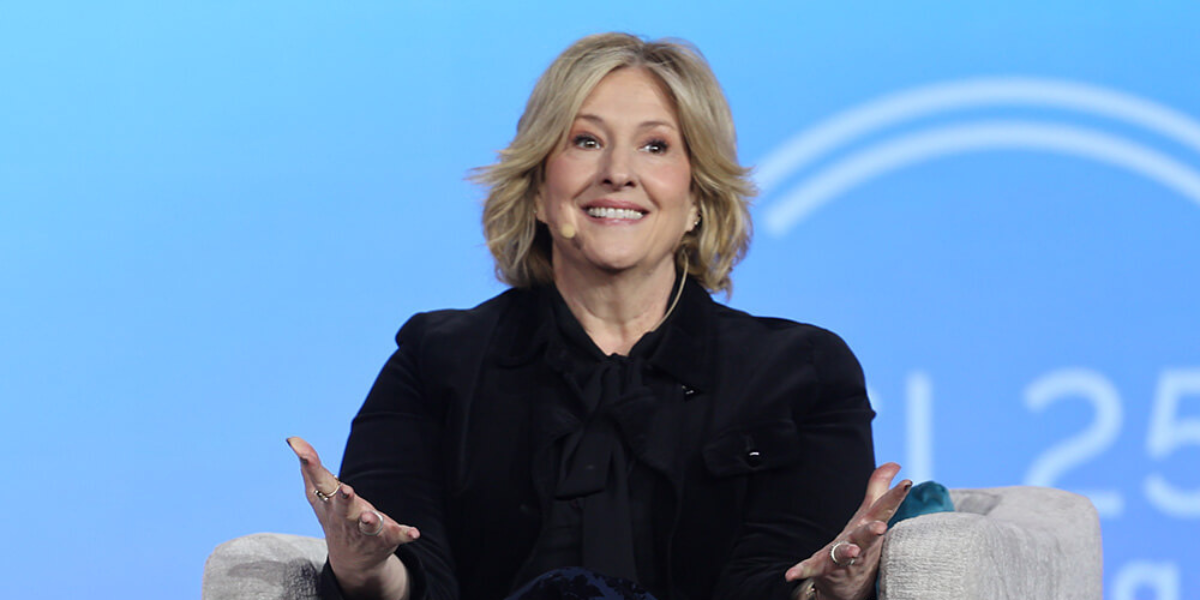Why Brené Brown Believes Courage Is the CEO Superpower We Can’t Ignore

“If you're going to make a list of brave leaders who are never afraid, don't put me on it — I'm afraid every day.”
— Brené Brown, on Masters of Scale with Reid Hoffman
In a world where disruption is constant, innovation demands speed, and AI is reshaping industries by the month, the leaders who thrive aren’t the ones moving fastest — they’re the ones leading with courage, clarity, and emotional intelligence.
That was the central theme of an electric conversation between best-selling author and researcher Brené Brown and LinkedIn co-founder Reid Hoffman on the Masters of Scale podcast, recorded live at the Masters of Scale Summit in San Francisco. What emerged was a deep and refreshingly tactical exploration of what leadership requires today — and why courage, far from being a lofty ideal, is now a measurable, teachable skill that separates truly effective founders and CEOs from the rest.
Courage Isn’t a Trait — It’s a Skillset
Brown, whose new book Strong Ground explores the psychology of courageous leadership, opened the conversation with a simple but powerful reframe:
“Courage is teachable, measurable, and observable. It’s not a tagline — it’s a skill set.”
She breaks courageous leadership into four teachable components:
- Clarity of values and alignment with actions
- Integrity and the willingness to be vulnerable
- Accountability, both personal and organizational
- Understanding and managing your “armor” — the behaviors you default to when afraid
That last one struck a chord with the audience.
For Brown, her armor is perfectionism and micromanagement. “I get overly decisive,” she said. “I’ll shut down a meeting, move the money, pivot the team… and later realize, oh shit — these might not be good decisions.” Her team has learned to spot these moments: “We never write anything down when you’re acting like this,” they told her.
Entrepreneurs, take note: Your biggest leadership flaws may be your unconscious reactions to fear.
Want to Lead Better? Drop the Armor
Brown’s research unearthed a striking insight: fear isn’t what blocks courageous leadership — it’s the armor we put on to hide that fear. For founders under pressure to hit revenue targets, secure funding, or pivot under uncertainty, these armors can show up as:
- Overconfidence masking self-doubt
- Micromanagement when facing uncertainty
- Perfectionism stalling execution
- Indecisiveness disguised as “strategic patience”
What’s the fix? Radical self-awareness and emotional granularity.
“If you can't name it, you can't tame it,” Brown reminded the audience. “Adults in this country can name only three emotions: happy, sad, and pissed off. But you need 85 to 90 emotions for true leadership range.”
That range matters — especially in the face of failure. Brown notes that when setbacks happen, great leaders need their team to “be responsible for their own bounce.” That bounce comes from knowing how to process disappointment, grief, or frustration — not just powering through it.
Empathy: The Misunderstood Leadership Advantage
At a time when public discourse often frames empathy as weakness or “woke overreach,” Brown brought needed clarity.
She distinguishes between two types:
- Cognitive empathy: The ability to understand what someone else is feeling and reflect it back — essential for relationships and trust.
- Affective empathy: Actually feeling what others feel — which can lead to burnout and over-identification.
In leadership, cognitive empathy is the real superpower — and Brown doesn’t mince words about those who dismiss it:
“If my leadership plan includes hurting people, especially vulnerable populations, I’m going to devalue empathy. Because I don’t need your pushback.”
Founders building cultures should take this seriously: true empathy fuels inclusion, retention, and resilience. It’s not about soft skills — it’s about real influence and sustainable teams.
The Systems Thinking Gap in the C-Suite
One of Brown’s most urgent messages for entrepreneurs? We are losing the ability to think in systems.
“Systems thinking is a top skill for future leaders,” she warned, “but I see less and less of it.” And when organizations stop bringing in feedback — when their boundaries become impermeable — they become self-referencing systems.
What does that look like?
- Teams that only benchmark against themselves
- Leadership that resists market feedback
- AI implementations that fail because of closed-loop thinking
Brown links this directly to MIT Sloan research showing that 90% of AI investments yield no ROI. The lesson? If your company can’t see itself clearly, it can’t improve — or survive.
Strategic Slowness Is the New Speed
In perhaps the most vivid metaphor of the conversation, Brown compares reactive CEOs to five-year-olds playing soccer:
“When the ball comes in fast, they kick it as hard as they can at head height… but experienced players trap the ball on their chest, settle it, scan the field, and pass with intention.”
Today’s business climate demands that same composure. Especially with AI moving fast, Brown says the best CEOs are those who can create time where none exists.
That doesn’t mean slowing down recklessly — it means creating strategic pause to align AI plans with business goals, to ensure your culture and your tech evolve together, and to move from action to impact.
Final Takeaway for Founders
Reid Hoffman summarized it perfectly:
“Your fitness function isn’t response at speed — it’s intelligent response at speed.”
For wantrepreneurs and early-stage founders, this conversation wasn’t just a masterclass in leadership — it was a call to level up. Not by optimizing your calendar or your tech stack, but by upgrading how you relate to yourself, your team, and your values under pressure.
Because courage isn’t something you either have or don’t — it’s something you practice. Every. Single. Day.





